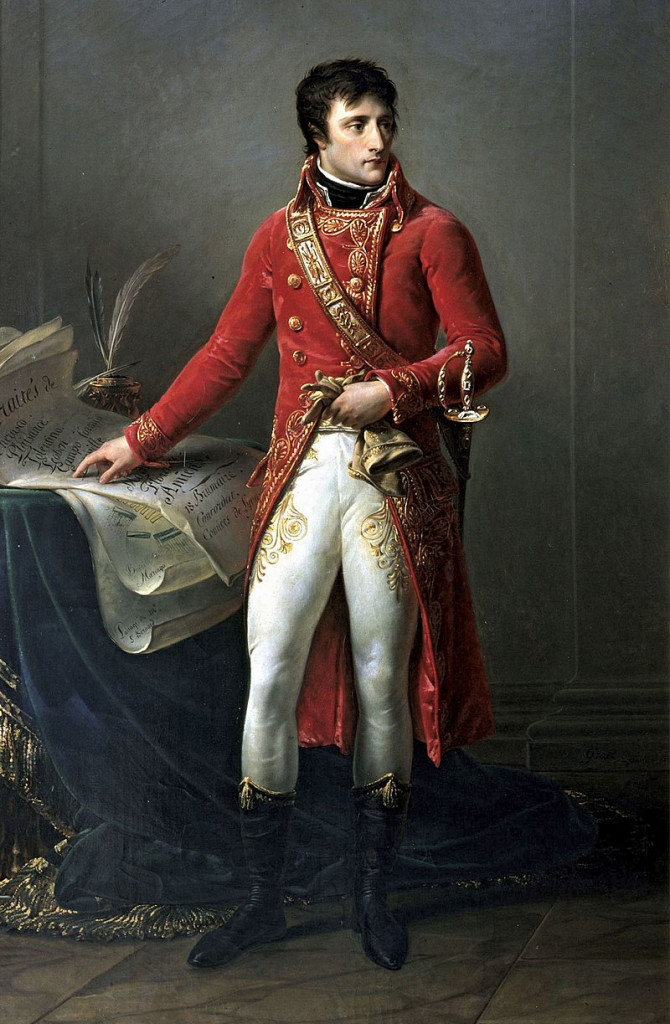Commentary
Macron ignores the Paris Commune but ‘Napoleon is part of us’
The controversy has been raging for months, and for many it is evidence of a choice of political side, one year before the presidential elections: Macron’s political line is tilting towards the right.

A century ago, the ceremonies to commemorate the 100th anniversary of Napoleon’s death were the occasion for the launch of what would become the world’s most famous perfume, Chanel No. 5.
On Wednesday, however, there was no perfume and no levity in the controversy that accompanied what the Elysée Palace intended as a “commemoration” of a “complex person,” a fundamental character in the history of France.
“Napoleon is part of us,” said Emmanuel Macron in a speech at the Institut de France, before laying a wreath on the tomb of the former emperor at the Invalides, against the backdrop of the work of the artist Pascal Convert (controversial, of course), reproducing the skeleton of the horse Marengo, the favorite of the emperor (kept since 1831 at the National Army Museum in London).
In this way, Macron said, he wanted to “look history in the face,” without “hagiography, or denial, or repentance.” He highlighted the figure of Napoleon who opens up “all possibilities,” an engine of history, whom he is clearly inspired by. “An eagle and an ogre”—this is the ambiguity of the character who “entrusted the Republic to the Empire”: it was a speech trying to reconcile the opposites, between the left who believes that Napoleon was the death of the Revolution and the right who considers him a hero, like De Gaulle.
Why just Napoleon, though—as the president has refused to commemorate the 150th anniversary of the Commune in March? The controversy has been raging for months, and for many it is evidence of a choice of political side, one year before the presidential elections: Macron’s political line is tilting towards the right.
In the current moment of centrality for post-colonial studies, the First Consul’s figure is one of those to be taken down from their pedestal, as he was responsible for the reintroduction of slavery in the West Indies in 1802, eight years after its abolition by the Revolution. “A mistake, a betrayal of the spirit of the Enlightenment,” Macron admitted, while at the same time urging people to “know history,” to “fight against ignorance,” to concede “nothing to those who want to erase the past” and to not “give in to the anachronistic temptation to judge it with today’s eyes.”
To soften the controversial edge, he added that the debate should be “left to the historians,” so that they would investigate “the whole of Napoleon’s deeds, light and dark,” a life story which “has not yet revealed all its secrets.” On May 10, the day dedicated to the fight against slavery, Macron will commemorate the 20 years of the Taubira law, which declared slavery a “crime against humanity.”
Napoleon is a highly controversial historical subject in France. It has always been like that. In fact, none of Macron’s predecessors at the presidency of the Fifth Republic (apart from Pompidou in 1969) has ever seen fit to venture onto the slippery slope of commemorating any important date linked to the emperor (Chirac had found an excuse not to recall the 200th anniversary of Austerlitz in 2005).
Napoleon’s legacy still permeates France today: from the civil code to the high schools, the “Bac” (high school leaving examination), the Court of Auditors, the Council of State, the Prefects, the Legion of Honor, the Banque de France, the prominent role of science—all date back to the former emperor, the controversial pioneer of the modern state.
The obverse—which is taking on greater importance in contemporary historiography—in addition to the return of slavery, included the hundreds of thousands of dead in the wars (Macron himself recalled “the cannonades of the Italian campaign”), the autocratic management of power, colonization, the limitation of the freedom of the press, the imperialist aims, his family members put at the head of the various subordinate kingdoms, and him being the “great misogynist” (according to the words of the Minister of Equality, Elisabeth Moreno) who codified the inferiority of women.
There are also the special laws he imposed on the colonies, whose negative consequences are still being felt today. And there is modern nationalism, which according to some historians lies at the origin of subsequent European tragedies.
“The Revolution is over,” said Napoleon on 18 Brumaire (November 9, 1799). In 1795, he had suppressed a monarchical insurrection, which wanted a return to the Ancien Régime. The Memorial of Saint Helena was a book invoked by revolutionaries and reformers in Europe across the 19th century. And we find the same irreconcilable ambiguity outside France: to some, he was a “god of war,” according to the Prussian Clausewitz, “the World Spirit on horseback” for the philosopher Hegel, but a monster in Spain, a tyrant in the Netherlands, a dictator in the U.K.; however, a hero in Poland and an example in Latin America, while in the Savoy valleys, which belonged to France in that period, he is remembered for granting freedom of worship to the Waldensians.
Now, just days before the launch of the Conference for the Future of Europe in Strasbourg on Sunday, May 9, for Macron Napoleon represents the force of will. Even though at the end of his bloody conquests he left a France smaller than the one he inherited. Napoleon—at once “world spirit and demon for Europe,” as Macron described him.
Originally published at https://ilmanifesto.it/napoleone-soggetto-altamente-infiammabile/ on 2021-05-06
